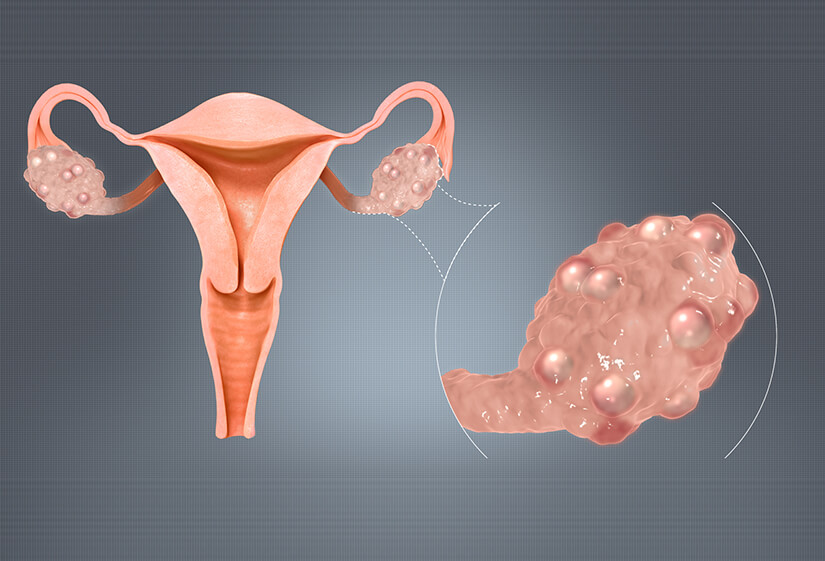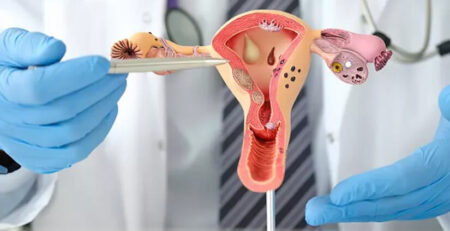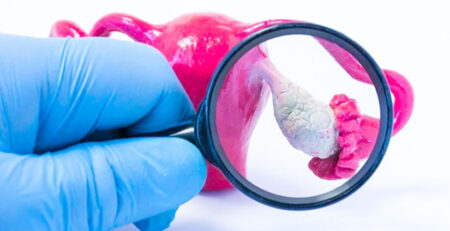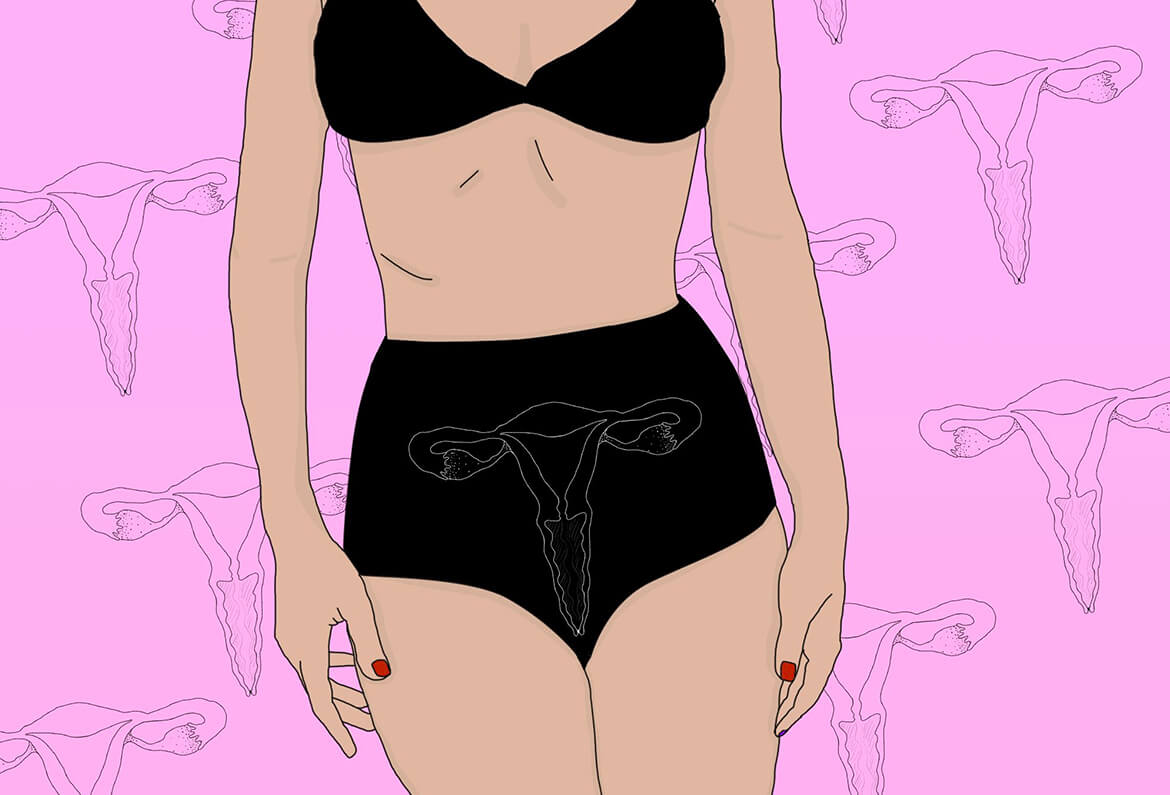How is polycystic ovary syndrome (PCOS) treated?
Polycystic Ovarian Syndrome (PCOS) is a common hormonal disorder and its treatment is tailored according to the symptoms one face or one can develop later in life due to PCOS.
The main component of PCOS treatment in Delhi are as following:
1- Lifestyle Modification: Diet and Exercise to achieve optimal BMI & manage obesity
Diet and exercise are the first lines of treatment for PCOS. Most PCOS women are resistant to insulin. Making healthy lifestyle changes can help to improve insulin sensitivity, reduce excess weight, and regulate menstrual cycles. These changes will also help with fertility by regulating your hormones.
A healthy diet for women with PCOS is low in calories and high in nutrients. Micronutrients play a very integral role in treating and managing PCOS.
Here are some foods that women with PCOS can eat:
- Whole grains: Whole grains are a good source of fibre, which can help to regulate blood sugar levels. This includes brown rice, quinoa, oats, and whole-wheat bread. Consult the doctor to include food in your diet for PCOS treatment in Delhi.
- Lean protein: Lean protein can help keep you full and satisfied. This includes chicken, fish, beans, and tofu.
- Fruits and vegetables: Fruits and vegetables are low in calories and high in nutrients. They are also a good source of fibre.
- Healthy fats: Healthy fats, such as those found in olive oil, avocados, and nuts, can help to improve insulin sensitivity.
Here are some foods that women with PCOS should avoid:
- High-sugar foods: Sugar can increase insulin levels, worsening PCOS symptoms. This includes sugary drinks, processed foods, and sweets.
- Refined carbohydrates: Refined carbohydrates are quickly digested and absorbed, which can lead to spikes in blood sugar levels. This includes white bread, pasta, rice, and pastries. Before adding carbohydrates to your diet, consult the Gynaecologist providing PCOS Treatment.
- Fried foods: Fried foods are high in unhealthy fats, which can contribute to weight gain and insulin resistance.
- Processed meats: Processed meats are high in saturated fat and sodium, which can worsen PCOS symptoms. This includes hot dogs, sausages, bacon, and lunch meat.
- Dairy products: Some dairy products, such as whole milk and cheese, can be high in saturated fat. If you are lactose intolerant, you may also want to avoid dairy products, as they can cause bloating and other digestive problems.
- Alcohol: Alcohol can increase insulin levels and contribute to weight gain.
It is important to note that everyone with PCOS is different, and what works for one person may not work for another. It is best to talk to a gynecologist providing PCOS treatment or a registered dietitian about creating a diet that is right for you.
In addition, you can take some supplements to meet the nutrition deficit effectively.
Supplements that Help to Manage PCOS
Inositol: Inositol is a naturally occurring compound that has been shown to improve insulin sensitivity and reduce androgen production.
Vitamin D: Vitamin D deficiency is common in women with PCOS. Vitamin D supplementation may help to improve insulin sensitivity and reduce the risk of developing other health problems such as heart disease and diabetes.
Omega-3 fatty acids: Omega-3 fatty acids have been shown to improve insulin sensitivity and reduce inflammation. They may also help reduce hair loss and improve mood in women with PCOS.
Exercises to Manage PCOS and Reduce Stress
- Aerobic Exercises: Engage in aerobic activities such as brisk walking, jogging, cycling, or dancing to improve cardiovascular health and manage weight. Exercise is an effective PCOS treatment in Delhi.
- Yoga: Incorporate Yoga into your routine for its stress-reducing benefits and its positive impact on hormonal balance.
- Swimming: Swimming is a low-impact exercise that provides a full-body workout while being gentle on the joints.
- Strength Training: Include strength training exercises using resistance bands or weights to build muscle, which can improve metabolism and aid in weight management.
- Stretching: Regular stretching exercises can improve flexibility, reduce muscle tension, and ease stress.
- Mindfulness Meditation: Practice mindfulness meditation to reduce stress and promote emotional well-being.
- Breathing Exercises: Deep breathing exercises and diaphragmatic breathing can help manage stress and anxiety.
Remember to consult with a qualified fitness instructor or gynaecologist providing PCOS treatment before starting a new exercise program, especially if you have underlying health conditions. They can provide guidance tailored to your individual needs and abilities.
2- Managing Insulin Resistance
Medications
Metformin and Inositols: The specialist for PCOS treatment in Delhi may prescribe you to improve insulin sensitivity. It can help lower insulin levels and reduce the risk of developing type 2 diabetes.
Weight Management
Achieving and maintaining a healthy weight can significantly improve insulin sensitivity and reduce the severity of PCOS symptoms.
3- Symptom based treatment in PCOS:
Lifestyle changes and managing insulin resistance is the backbone of PCOS treatment. Along with this symptom based treatment is advised to women
- Management and Treatment of Irregular Periods in PCOS
Birth Control Pills
Oral contraceptives are often prescribed to regulate menstrual cycles. They provide a consistent hormonal balance that can help regulate periods and reduce symptoms like heavy bleeding.
Progestin Therapy
Progestin medications, such as medroxyprogesterone, may be recommended to induce regular periods. These are often given in cycles to mimic a natural menstrual cycle.
- Treatment of PCOS-Related Infertility
Infertility is a common concern for women with Polycystic Ovarian Syndrome (PCOS) due to irregular ovulation and hormonal imbalances. However, several treatment options are available to help women with PCOS conceive. Here are some common approaches:
Ovulation Monitoring
Regular ovulation monitoring through blood tests and ultrasound can help track the progress of fertility treatments recommended by the IVF center in Delhi and adjust the timing of intercourse or procedures accordingly.
Fertility Medications
Fertility drugs like Clomiphene or Letrozole are commonly prescribed to induce ovulation. These medications stimulate the ovaries to release eggs and regulate menstrual cycles.
Gonadotropins
Injectable gonadotropins, such as FSH (follicle-stimulating hormone), are another option to stimulate ovulation when oral medications are ineffective for PCOS treatment in Delhi.
Intrauterine Insemination (IUI)
IUI involves placing specially prepared sperm directly into the uterus, increasing the chances of fertilization. It is often combined with fertility medications.
In Vitro Fertilization (IVF)
IVF is a highly effective fertility treatment that involves retrieving eggs from the ovaries, fertilizing in a lab environment in a petri dish, and transferring embryos into the uterus. Gynaecologists often recommend IVF treatment for PCOS when other fertility treatments do not work. Consult the best IVF Centre in Delhi.
- Treatment of Cosmetic Concerns in PCOS
Cosmetic concerns like acne and excessive hair growth (hirsutism) can impact self-esteem for women with Polycystic Ovarian Syndrome (PCOS). With scientific advancements, various treatments are available to manage these concerns:
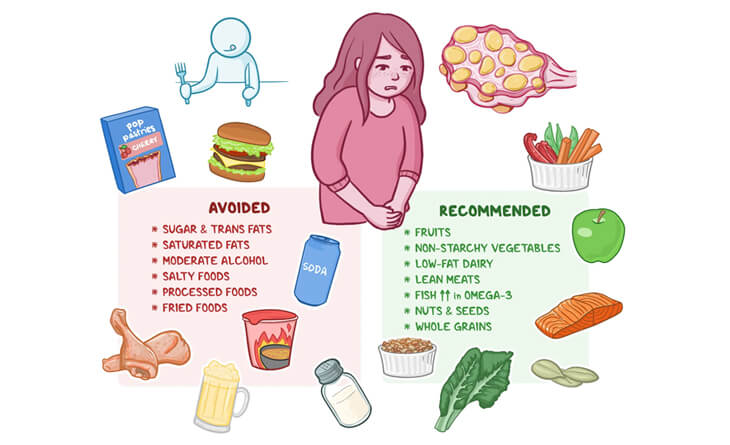
1- Treatment Options for Acne
Topical Treatments
Over-the-counter or prescription topical treatments containing ingredients like salicylic acid, benzoyl peroxide, or retinoids can help control acne breakouts.
Oral Medications
In cases of severe acne, an experienced skin specialist may prescribe oral antibiotics or hormonal contraceptives to regulate hormones and improve skin condition.
2- Treatment of Excessive Hair Growth (Hirsutism)
Hair Removal Methods: Laser Hair Removal, Electrolysis
Anti-Androgen Medications
In some cases, a gynaecologist providing PCOS treatment may prescribe anti-androgen medications like spironolactone to reduce androgen levels and manage irregular periods.
Hormonal Treatments
For women with PCOS, hormonal treatments like birth control pills can help reduce excessive hair growth by balancing hormone
Remember, it is very much possible to lead a normal, regular life while you have PCOS. It is just about ensuring you are on the right path of the do(s) and don’t(s) when managing PCOS.
We sincerely hope this guide provided you with essential insights into understanding the symptoms and approaching PCOS management more informally. If you are a woman suffering from PCOS or suspect you might be, book your consultation with an experienced gynecologist for PCOS treatment in Delhi or meet an infertility specialist to help you understand your condition better.

